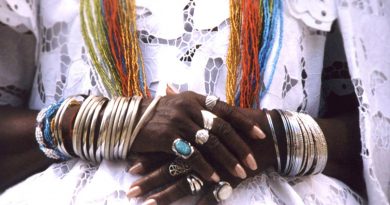The Cultural Politics behind the Arrest of an Iranian Dancer
In early July, a teenage dancer from Iran, Maedeh Hojabri, was detained for posting photos and videos of herself dancing on Instagram. There are several frameworks for understanding Hojabri’s arrest. The dominant interpretation is that the arrest demonstrates the extent to which Iranian authorities impose their cultural dictates on Iran’s youth, and that the regime is, in the words of Jason Rezaian, trying to “stamp out the sensual and feminine aspects of national identity.”
But you can see this story through a different lens by moving away from the physicality of dance; that is, beyond dance as an expression of social behavior and aesthetic norms and values. Only a few months short of the 40th year anniversary of the Iranian Revolution, the focus should be on the broader ideological and political ramifications of the arrest.
Even if dance can be artificially separated from its social context and considered solely in its physical features as an art form, the social component is implicit to the dancer as an individual and as a member of a socio-cultural community. Bearing this in mind, one may suggest that Hojabri was arrested for embodying the malaise of “Westoxication” (Gharbzadegi) — a term coined by the Heideggerian philosopher Ahmad Fardid and later elaborated by the intellectual Jalal al-e Ahmad to describe fascination with, and dependence on, the West to the detriment of Iran’s traditional cultural heritage.
Indeed, as Rezaian (former Washington Post Tehran bureau chief who spent 18 months in jail in Iran on espionage charges) asserts, “she might have been picked for a television talent competition show.” A talent show, indeed — America’s Got Talent, Britain’s Got Talent, The X-Factor, The Voice — all Western productions, reflecting the globalization of popular Western culture.
IDEOLOGICAL BAGGAGE
Dance, as an artistic means of expression, or as a form of social interaction, is inscribed with social and political meaning, especially in West Asia and North Africa. Manipulated by the Orientalist agenda, Western representations of belly dance in literature and culture, for example, reflect how something as innocuous as dance can carry heavy ideological baggage.
The complex ways in which belly dance has been mythologized, represented and constructed in colonial travel writing, fiction, art and images from popular culture demonstrate that dance can produce social and political meaning. The term itself, danse du ventre, for instance, is fraught with political meaning, apparently denoting the French colonial conquest of Algeria and Tunisia. The term is said to be “redolent with imperial soldiers’ heterosexual pursuit of hedonist fulfilment on colonized subjects’ bodies.”
Continue reading the article on Fair Observer.
Maedeh Hojabri (Instagram)
The opinions expressed in this blog are solely the authors’ point of view and do not bind the Center for International Studies, its Director or any other researcher.
![]() This work is licensed under a Creative Commons Attribution-NonCommercial-ShareAlike 4.0 International License.
This work is licensed under a Creative Commons Attribution-NonCommercial-ShareAlike 4.0 International License.




